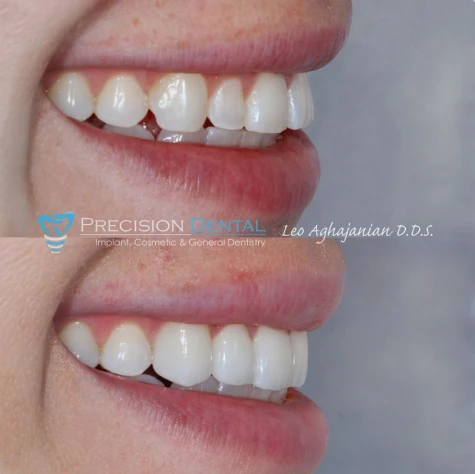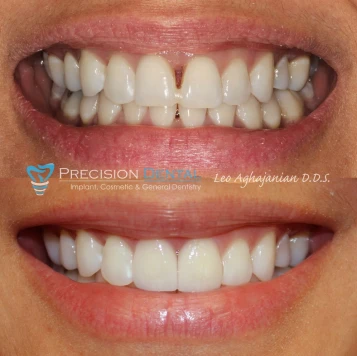Implant Dentistry
Dental implants are artificial titanium roots that are seated in the jawbone, thereby laying the foundation for fully stable replacement teeth. Near-100% stability can be achieved with the right number of implants and a crown, bridge, or full denture.

Dental Implants: The most significant dental innovation of our generation
We can achieve things that were previously not possible. Advantages of dental implants include:
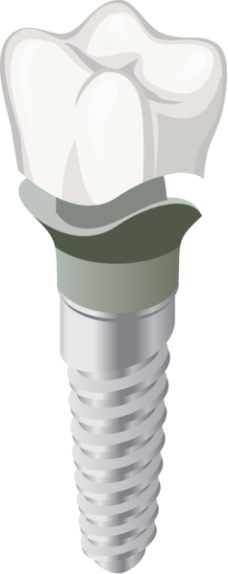
- Best Long-Term Solution: With the highest success rate on any tooth-replacement option and a track record spanning decades, implants are the best long-term solution to missing teeth. Properly cared for, implants can last the rest of your life — that's what makes them such a good value.
- Titanium Metal Fuses to Bone Through the natural process of osseointegration, the titanium metal of the implant actually becomes fused with the living bone cells of the jaw. This remarkable union forms a strong and durable anchor for your new teeth.
- Dental Implants Replace Tooth Roots Because they become integrated into the bone itself, dental implants actually stop the bone loss that inevitably follows tooth loss. Implants won't loosen over time like dentures or fail like bridges; they look, feel and function just like natural teeth. Preserving bone structure helps preserve your appearance — and your confidence.
- Lifelike Appearance Dental implants are virtually indistinguishable from your natural teeth in both aesthetics and function. Plus, they provide a host of benefits that other tooth replacement systems just can't match. The visible part (crown) is custom-made to enhance your smile - but the real beauty of dental implants goes much deeper.
- Durability Implants are very durable and will last many years. With good care, many implants last a lifetime.
- Improved comfort Because they become part of you, implants eliminate the discomfort of removable dentures.
- Improved self-esteem Dental implants can give you back your smile and help you feel better about yourself.
- Easier eating Sliding dentures can make chewing difficult. Dental implants function like your own teeth, allowing you to eat your favorite foods with confidence and without pain.
- Improved speech With poor-fitting dentures, the teeth can slip within the mouth causing you to mumble or slur your words. Dental implants allow you to speak without the worry that teeth might slip.
- Improved oral health Dental implants don’t require reducing other teeth, as a tooth-supported bridge does. Because nearby teeth are not altered to support the implant, more of your own teeth are left intact, improving long-term oral health. Individual implants also allow easier access between teeth, improving oral hygiene.
- Convenience Removable dentures are just that; removable. Dental implants eliminate the embarrassing inconvenience of removing dentures, as well as the need for messy adhesives to keep them in place.
Are you a good candidate
for dental implants?
Most patients can receive dental implants to restore comfort, appearance, and function. Some of the important factors that we evaluate for treatment include:
- Gum health.
- Adequate density in the jawbone.
- General health, including certain medications and health conditions, such as diabetes.
- Non-smokers are better candidates for dental implants.
The Implant Procedure
There are a few phases to dental implant treatment:
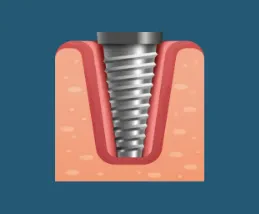
Planning and placement
After thorough planning using imaging and data from our initial exam, we place each implant post into the jawbone and cover this fixture with gum tissue. The procedure is performed with a local anesthetic.
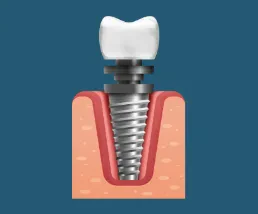
Healing
Seated implants require several months to fully integrate into the jawbone. During this time, temporary restorations are in place to support chewing and cosmetic beauty.
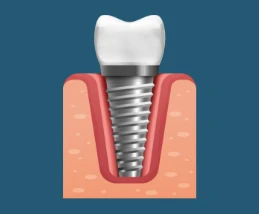
Restoration
The stabilized implant post can now be fitted with an abutment, a connective piece that holds the final crown, bridge, or denture.
Most patients feel no discomfort during implant surgery, and experience minimal soreness following the procedure. It is important to note that, in some cases, bone grafting may be needed prior to the placement of dental implants.
In which cases are dental
implants advised?
Treatment with dental implants allows for:
- Replacing a single tooth
- Replacing several teeth
- Replacing all the teeth of a totally empty jaw.
In this case, the implants allow for attaching a bridge or stabilizing a removable denture.
Missing Teeth: Doing Nothing
Doing nothing is still a choice. However, it is not recommended. One problem that will develop with one or more missing teeth is that the bone that once surrounded the extracted tooth will begin to deteriorate or resorb. If you eventually decide to get a dental implant, the expense will be higher because a bone graft will be required to prepare the area for your new implant.
An additional risk of leaving a missing tooth untreated is that the gap left by the missing tooth can cause surrounding teeth to begin moving into the area, leading to gaps in your smile or problems with your bite. Fixing the resulting issues can lead to additional expenses down the road.
Getting a dental implant ensures that your jawbone does not lose bone mass and that your smile is unaffected. It also ensures that your facial appearance does not change due to the loss of bone mass.
Cost of Dental Implants
Naturally, having dental insurance pay for any part of your implant procedure makes it more affordable. Many patients have the experience that the procedure is not covered, except for those with a medical necessity or who were covered for a long time before the need for a dental implant arose.
The cost of a dental implant with insurance will vary based on the individual plan for the procedure and what it covers. Some dental plans pay for a portion of cosmetic procedure costs when a tooth is missing.
Ultimately, the cost of a dental implant depends upon many factors. We can help determine what the cost would be for your situation after examining your mouth and teeth and determining what treatment plan makes the most sense for you.
Visit our Glendale dentist today to see if dental implants are right for you.
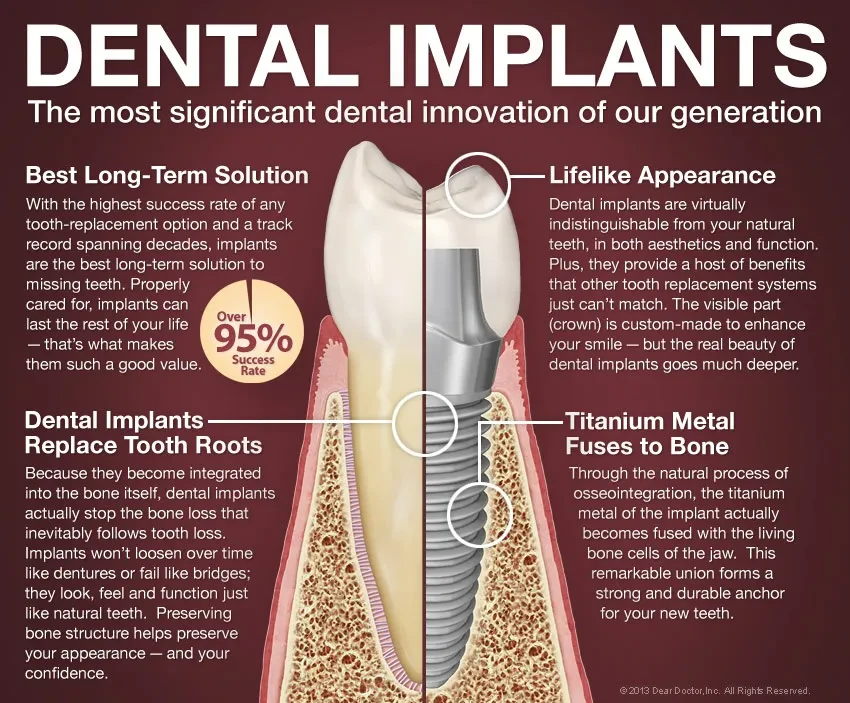
Related Articles About Dental Implants:

What do I bring to my appointment?
CALL US!
(818) 545-8923

